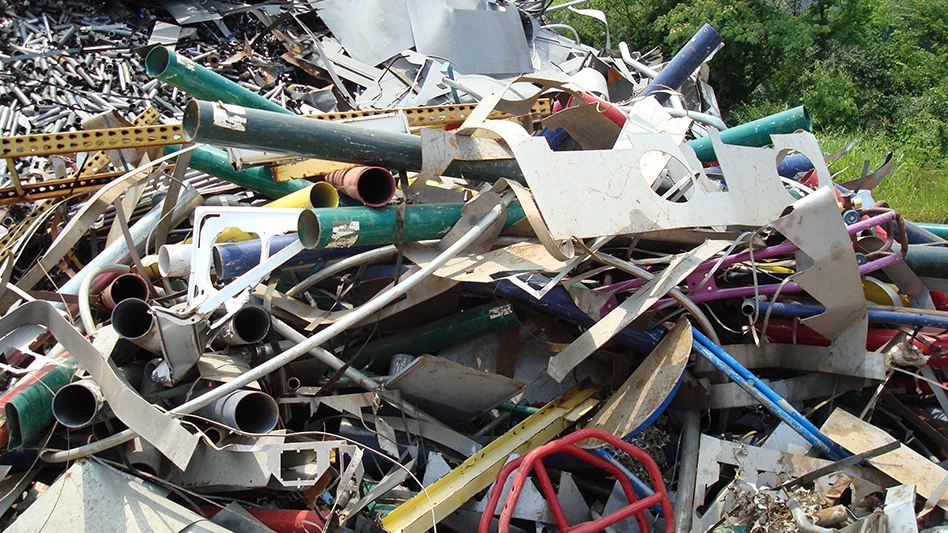
Recycling Today archives
The Berlin-based Association of German Metal Traders and Recyclers (VDM) and the Düsseldorf, Germany-based Federal Association of German Steel Recycling and Waste Management Companies (BDSV) have issued a joint 2024 Circular Economy Status Report.
The associations say the report helps emphasize “the outstanding importance of the steel and metal recycling industry” in attaining both circular economy and decarbonization goals.
“The steel and metal recycling industry plays a crucial role in the circular economy," the groups say. "It not only stands for efficient and resource-saving recycling of steel and metal scrap, but also acts as a reliable partner for our industry.
“By using high-quality processed material, it significantly reduces the need for ores and thus enables more environmentally friendly production.”
In the steel sector, the use of 1 ton of ferrous scrap in steel production leads to a saving of 1.67 tons of CO2, according to the BDSV and VDM, while 1 ton of stainless steel scrap saves as much as 6.7 tons of CO2 from being emitted.
As part of the status report, the VDM makes a case for the importance of foreign trade for the metal recycling industry. “To strengthen our industry, it is crucial that legislators and authorities understand the global, fast and flexible way of acting that is necessary to efficiently return all raw materials to the cycle,” the group says.
The associations also call for “further development of the importance of steel and metal recycling as a central element of the circular economy in the German Sustainability Strategy or the National Circular Economy Strategy.”
Latest from Recycling Today
- Phoenix Technologies closes Ohio rPET facility
- EPA selects 2 governments in Pennsylvania to receive recycling, waste grants
- NWRA Florida Chapter announces 2025 Legislative Champion Awards
- Goldman Sachs Research: Copper prices to decline in 2026
- Tomra opens London RVM showroom
- Ball Corp. makes European investment
- Harbor Logistics adds business development executive
- Emerald Packaging replaces more than 1M pounds of virgin plastic





